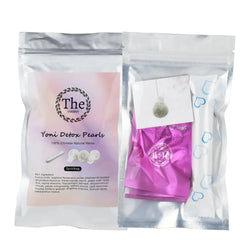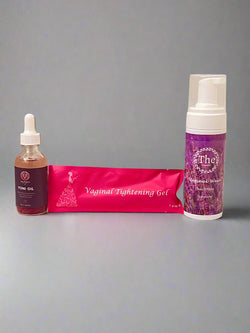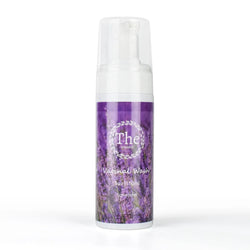Women’s health goes beyond just general well-being; it encompasses specific practices to maintain feminine hygiene naturally. For many, finding effective and gentle methods can be a challenge, yet a significant aspect of self-care. With an increasing interest in natural products, this guide explores various holistic approaches to feminine hygiene, emphasizing safe and effective cleansing practices.
Understanding Feminine Hygiene
Importance of Natural Approaches
Feminine hygiene is crucial for overall health and wellness, affecting everything from comfort to self-esteem. The vagina is a self-cleaning body part, meaning it maintains its own pH balance and flora. However, external factors such as diet, lifestyle, and hygiene practices can disrupt this balance.
Choosing natural products can significantly reduce the risk of irritation and infections. Embracing a natural approach involves using fewer synthetic chemicals and embracing organic materials that support your body’s natural mechanisms.
The Myths and Misconceptions
Many misconceptions surround feminine hygiene, particularly the need for strong cleansers or douching. These practices can upset the natural balance of the vagina, introducing harmful bacteria. Instead, gentle cleansing methods using warm water are often sufficient for keeping the area clean. Understanding these myths helps women make informed choices about their hygiene products.
Natural Cleansing Methods
Gentle Methods for Daily Care
Daily feminine hygiene can be simplified by using natural methods. A gentle wash with warm water is typically adequate. If soap is desired, choosing pH-balanced, fragrance-free options can minimize irritation. The goal is to maintain the vagina's natural moisture and acidity, which protects against infections. Avoid using harsh soaps, as they can irritate the sensitive areas.
Benefits of Herbal Detox
Incorporating herbal detox products can enhance natural feminine hygiene. Products like Herbal Detox Pearls offer natural support to cleanse and rejuvenate the vaginal environment. These pearls typically contain a blend of herbs that promote detoxification and maintain pH balance, reducing discomfort and potential infections.
Menstrual Hygiene Practices
Choosing the Right Products
During menstruation, it's essential to opt for breathable, absorbent materials. Reusable cloth pads or menstrual cups made from silicone offer eco-friendly alternatives that reduce waste and are often more comfortable. These products allow for airflow and help maintain a balanced environment during your period.
Regular Change is Key
It's important to change sanitary products regularly—at least every 4-8 hours—for optimal hygiene. Keeping track of time ensures that you minimize the risk of infections, including Toxic Shock Syndrome (TSS). Practicing good menstrual hygiene not only affects comfort but also plays a crucial role in your overall vaginal health.
Diet and Its Impact on Vaginal Health
The Role of Nutrition
Your diet significantly influences vaginal health. Foods rich in probiotics, such as yogurt and fermented foods, help maintain a healthy balance of good bacteria. Incorporating plenty of fruits, vegetables, and whole grains supports overall health and indirectly benefits the vagina by boosting the immune system.
Hydration Matters
Staying hydrated is vital for maintaining optimal bodily functions. Drinking adequate water aids in maintaining moisture in the vaginal tissues, reducing discomfort and issues such as dryness or irritation. Proper hydration also helps in flushing out toxins from the body, supporting overall well-being.
The Importance of Mindfulness and Self-Care
Managing Stress Levels
Stress has a profound impact on all aspects of health, including feminine hygiene. High-stress levels can lead to hormonal imbalances that negatively affect vaginal health. Practicing mindfulness, whether it's through meditation, yoga, or simple deep-breathing exercises, can substantially improve your mental well-being, which in turn supports your body.
Building Body Awareness
Understanding your body is essential for effective feminine hygiene. Take the time to notice any changes in odor, discharge, or discomfort levels. Being attuned to your body allows you to address concerns early, consult healthcare professionals when necessary, and make informed choices regarding your hygiene practices.
Conclusion
Maintaining natural feminine hygiene is an essential aspect of women’s well-being. By understanding your body, choosing gentle cleansing methods, and practicing good menstrual hygiene, you can create a positive routine. Pair these efforts with a balanced diet and mindfulness practices, and you’ll foster a holistic approach to health. Remember, prioritizing your intimate health reflects your overall self-care journey.
Frequently Asked Questions (FAQ)
1. What natural methods can I use for feminine hygiene?
Using warm water for washing and choosing pH-balanced soaps are excellent natural cleansing methods. Additionally, exploring herbal detox products can enhance the experience.
2. Can douching help maintain vaginal health?
No, douching can disrupt your natural balance and should be avoided. Your vagina can clean itself effectively without the need for harsh products.
3. How often should I change menstrual products?
It's recommended to change sanitary products every 4-8 hours to maintain optimal hygiene and lower the risk of infections.
4. What dietary changes can improve vaginal health?
Incorporate probiotics and hydration into your diet, as they support the natural balance and moisture levels of the vagina.
5. How does stress affect feminine hygiene?
Stress can lead to hormonal imbalances, which may affect your vaginal health. Practices like yoga and mindfulness can help manage stress levels.





